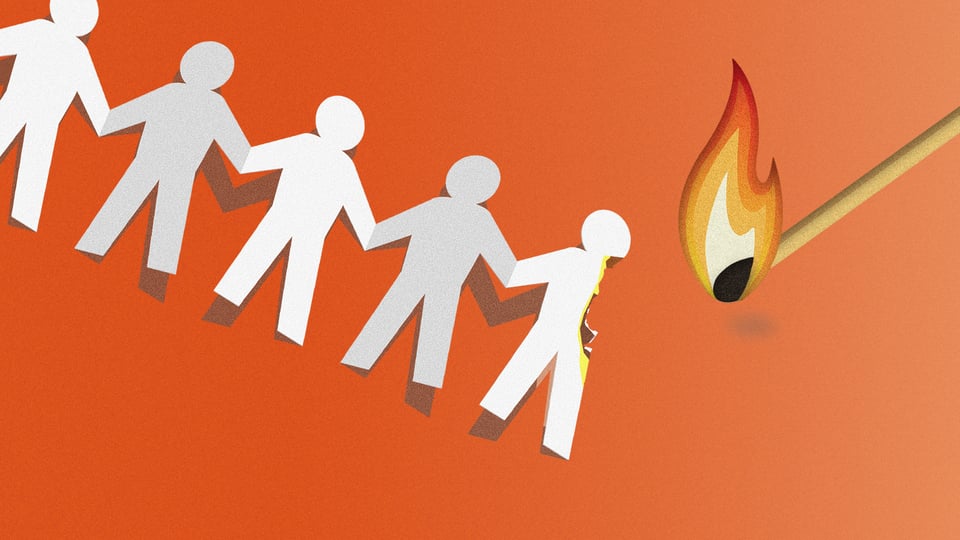The journalists are not okay

In November 2023, there were layoffs in several media organizations. Vice Media announced fewer than 100 job eliminations as it consolidated two divisions. G/O Media shuttered Jezebel, a 16-year-old publication, laying off 23 people in the process. Recurrent Ventures, which owns a number of media properties, laid off a number of people last week, including 13 people at Popular Science (A publication that has been around since 1872). Bloomberg Industry Group, a Bloomberg affiliate, laid off around 14 employees. CNBC laid off around 3 percent of its staff. Conde Nast is said to have laid off 5 percent. In October, The Washington Post offered voluntary buyouts so that it could cut 240 jobs.
Axios reports that nearly 20,000 jobs have been eliminated across the media industry this year (based on this study by Challenger, Gray & Christmas).
Of course, this pales in comparison to the layoffs happening in tech, which is closing in on 240,000 jobs lost this November. But, anecdotally, it's a lot harder for journalists to land a well-paying job than someone in tech. I know of plenty of journalists who have had to pivot to more stable careers after a layoff. Job insecurity among those in the media profession is at an all-time high.
The major culprit behind the media layoffs seems to be a volatile ad market, as it has been for the past few years, pandemic notwithstanding. Though there's been a slight ad market recovery and an increase in global ad revenue, this has not been enough to offset the revenue hit experienced by major publishers. In other words, if a publication is too dependent on advertising as its main revenue source, it is in big, big trouble.
And, I'm afraid to say, it's unlikely to slow down. Axios reports that these double-digit ad revenue declines are expected to continue into 2024.
The poor ad market isn’t the only reason publications are in trouble. It's also because an over-reliance on advertising makes the publications beholden to its whims. As this 404 Media article points out:
“The closure of Jezebel also underscores fundamental flaws in the ad-supported media model where concerns about ‘brand safety’ limit monetizing content about the biggest, most important stories of the day,” said the G/O Media writers in a statement released by their WGA East union. "A well-run company would have moved away from an advertising model, but instead they are shuttering the brand entirely because of their strategic and commercial ineptitude. Jezebel was a good website."
"Digital media businesses have been slow to move away from advertising-only models, and digital media executives deserve a huge portion of the blame for the commercial failure of their brands. But mismanagement alone isn’t the only reason the news media is failing. It’s because there’s an entire advertising industry that has fucked the internet, and fucked society."
The article goes on to say that ad tech software often use artificial intelligence to exclude content relating to certain subjects -- abortion, sex, immigration, etc -- because it supposedly elicits a negative response. So, if a site like Jezebel has a lot of sex-positive content, the programmatic ad software could inadvertently defund and demonetize it by simply not showing ads, even if it's high-quality investigating reporting.
Jason Koebler and Emanuel Maiberg of 404 Media said it better than I can:
"[Creating] a functional, sustainable business using advertising alone is incredibly difficult when the most powerful corporations in the world are banding together to put their thumbs on the scale about what is acceptable to be monetized and AI is constantly changing what the rules are, with no transparency and no possible recourse from publishers [...]"
"Digital media businesses have been slow to move away from advertising-only models, and digital media executives deserve a huge portion of the blame for the commercial failure of their brands. But mismanagement alone isn’t the only reason the news media is failing. It’s because there’s an entire advertising industry that has fucked the internet, and fucked society."
There are alternative sources of media revenue. Plenty of publications have turned to commerce editorial, where content like product reviews, deals, listicles and buying guides have affiliate links that generate revenue for the site (Full disclosure that I work in this capacity for my day job). This has its own problems, as not every publication that does this is trustworthy -- you'll want one that is editorially independent and has a rigorous ethics policy -- but it is at least not reliant on advertising.
The best source of media revenue, however, is from the reader directly. Whether it's through subscriptions or donations, reader-supported media is by far the most concrete form of revenue. That's why so many Big Media publications are behind paywalls. It's also no wonder that dozens of reputable journalists have turned to subscription-based newsletters rather than take their chances in a fraught media landscape.
But unless you're part of a small worker-owned media brand or someone with a large audience, that isn't quite sustainable either. Most journalists have to simply continue working under the specter of an uncertain future.
End Notes
Apologies for not sending out a newsletter the past couple of weeks, as a lot of stuff has been taking up mental head space. I also won't be making any improv appearances until mid-December. I hope to resume both regular newsletter-writing and improv-performing soon.
Feel free to reach out to me on Instagram, Mastodon, Bluesky or Threads. As always, while this newsletter is free, it would mean a lot to me if you paid for an optional monthly subscription to help offset hosting costs and to support my writing. Thank you for your support!